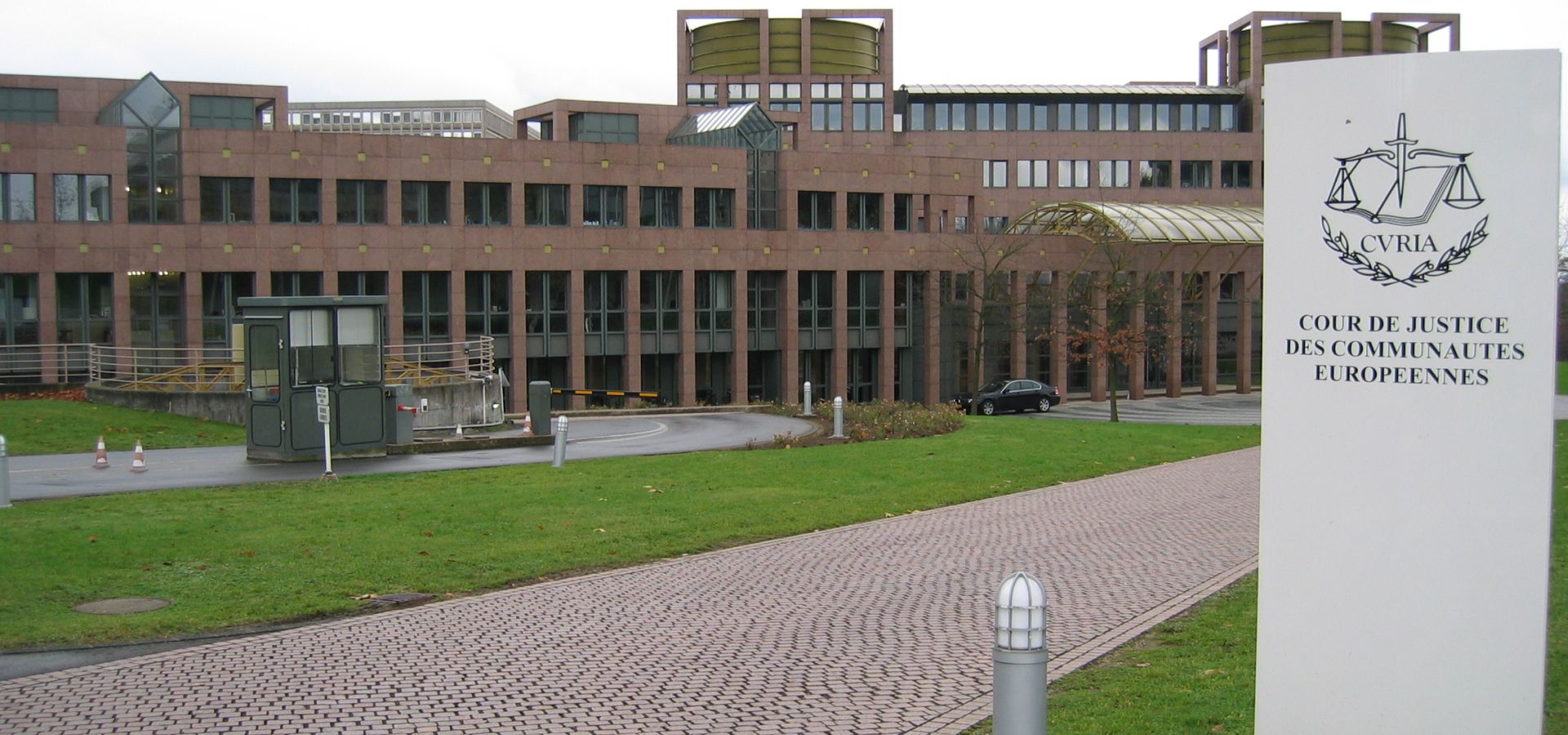Last week, the EU General Court sided with the European Commission in all respects. At issue were German feed-in tariffs and the industry exemption to the surcharge that finances them. Craig Morris spoke with two of Germany’s experts on the issue: Severin Fischer and Matthias Lang.

The European Court of Justice (ECJ) in Luxembourg. (Photo by Cédric Puisney, modified, CC BY 2.0)
It’s easy to get this story wrong: a lower EU court has ruled that German feed-in tariffs from the 2012 Renewable Energy Act (EEG) constitute state aid, as do the rules for industry exemptions. One might therefore assume that Germany will have to do something differently, such as get rid of “subsidies.” But one might be wrong.
A previous decision from 2001 came in favor of the predecessor law from 1991, when there was no national surcharge, no industry exemptions, and no Network Agency. They were established in 2000, 2003, and 2005. The General EU Court says the main difference to today is that the EEG effectively uses the Network Agency and grid operators to manage a national surcharge completely controlled by the state – hence, constituting state aid.
Over on the German Energy Blog, legal expert Matthias Lang writes that the court agreed with the European Commission that German feed-in tariffs of 2012 “constitute state aid compatible with the internal market.” So the first thing we have to understand is that “subsidy” is not a word defined in EU law, which speaks instead of “state aid.” And not all of that is illegal; state aid is permissible if there is a justification.
“The debate is philosophical and has gone on for ages,” says Severin Fischer, Senior Researcher at the Center for Security Studies at the ETH in Zürich. Does the EU Commission have a say in the design of renewable energy policies in Member States? “Berlin has always negotiated the EEG with the Commission but has always insisted that it has done so voluntarily to create legal certainty for billion euro transfers in industry exemptions – always insinuating that Brussels had no right to demand input,” Fischer explains. “Now, the Commission can insist.”
Lang agrees that the issue is largely one of mandates – did Brussels summons or invite Berlin to the table? (It’s a summons, the General Court says). But since the EEG 2014 was negotiated all along anyway, Lang does not expect any retroactive changes to be made: “The Commission had already said the feed-in tariffs and industry exemptions of 2012 were mostly in line with what they wanted, so why would that position change?” In addition, Germany did not challenge the Commission on the 2014 EEG and is currently working on bringing the EEG version for 2017 in line with the Commission’s 2014 request.
Fischer believes, however, that the EU Commission is in a better negotiating position today. “The ruling thus mainly has consequences for the future.” But Lang is not so sure things will change: “Berlin uses both sides of the sword, sometimes saying the EEG is none of Brussels’ business, but then sometimes saying Brussels is forcing it to do something.” Could Berlin be secretly happy with the General Court’s ruling?
The de minimis rule is a case in point: Brussels says its state aid guidelines need not apply to small projects. A wind farm, for instance, can consist of six turbines without falling under the guidelines. This year, EU Competition Commissioner Margrethe Vestager clarified how big each turbine could be: three megawatts, producing an 18 MW wind farm. But Berlin requires everything larger than 1 MW to be auctioned; in this case, the German government clearly wants to be stricter than Brussels.
The matter is not yet settled. Germany could appeal the General Court’s decision to the European Court of Justice (ECJ), but even then nothing would necessarily change. Both Lang and Fischer point to the Ålands case, where the ECJ ruled that member states do have some independence in their energy policy. (Does internal market trading trump environmental protection? No, the ECJ said). Yet the General Court just ruled on a different matter and did not really contradict the other decision.
You see, despite some misleading press reports, the General Court did not just rule that Germany has to get rid of or reduce any “subsidies” for renewable electricity or industry exemptions to the renewable surcharge. Rather, the court stated that renewables policy is so important that Brussels must be allowed to coordinate what different member states do.
“Everybody is trying to put their own spin on this, but there’s a lot of detail in the decision,” Lang argues. In its push for an Energy Union, the Commission “is using competition law to harmonize energy policy,” Fischer says. It’s unclear how that will play out. And Lang points out that other proceedings are pending. Keep in mind that the ECJ did not side with its own Advocate General Yves Bot in the Ålands case. It is anyone’s guess how all of this will end, so check with a lawyer if need be – after all, they are basically expert guessers, right?
Craig Morris (@PPchef) is the lead author of German Energy Transition. He directs Petite Planète and writes every workday for Renewables International.
This is an interesting article. For the sake of accuracy it should be noted though that, even though it is true that wind farms consisting of 6 turbines and smaller are not covered by the auctioning obligation, they are still covered by the guidelines. State aid granted to such a wind farm therefore has to be notified to the European Commission. Also, it would be better to avoid the use of the word de minimis here. De minimis is a technical term that refers to very small amounts of aid (the size of the beneficiary does not matter) which do not have to be notified to the European Commission.